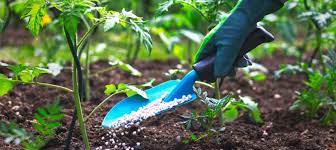
Regional stakeholders call for urgent action amid rising fertilizer prices

Mbabane – The Ukraine-Russia conflict, against the negative impacts of the COVID-19 pandemic and climate change, has exacerbated the affordability and availability of fertilizers for vulnerable smallholder farmers in Africa. In some countries in the region, fertilizer prices have risen by up to 150%.
“Fertilizer access is of great concern. At the current rate of price increases, vulnerable smallholder farmers cannot afford to purchase fertilizers, which will negatively affect the production of our staple crop, maize. Suppose there is no global response to fertilizer access and affordability, in that case, there will be an increase in the number of undernourished in 2023,” Jabulani Mabuza, Minister of Agriculture in the Kingdom of Eswatini, said addressing the meeting.
In response, the Food and Agriculture Organization of the United Nations (FAO) in collaboration with Centre for Coordination of Agricultural Research and Development for Southern Africa (SADCCCARDESA) convened a regional Multi-stakeholder dialogue with government policymakers, industry actors, civil societies, and development partners. They deliberated on the range of remedies, from the emergency response in the short term to sharing innovations, good practices, and viable options to mitigate the impact of fertilizer access on the most vulnerable farmers in Africa in the long term.
Fertilizers access is critical for stable food production
Although Africa only accounts for 4% of global fertilizer consumption, many sub-Saharan countries also heavily rely on fertilizer supplies from the Russian Federation for the production of maize, rice, and soybean. Smallholder farmers are producers of over 70% of the food consumed in sub-Saharan Africa.
“FAO is fully aware that fertilizer is not the only requirement for achieving stable and viable production, but rather that it is a major contributor. We are mindful of the need to address the low capacity of our food system, quickly adapting and developing innovative solutions,” Patrice Talla, FAO Subregional Coordinator for Southern Africa, remarked during the meeting.
“This dialogue is the first response entry pointing to the countries’ fertilizer access challenge. The recommendations from this meeting will be critical to ensure an increase in sustainable production and productivity,” Cliff Sibusiso Dlamini, Executive Director of SADC-CCARDESA said.
Prioritizing vulnerable smallholder farmers
Some governments have readjusted the input subsidy programmes to cushion the most vulnerable farmers. The government of Eswatini has provided extra funding of US$ 1800 for each hectare of maize, beans, and sorghum.
However, participants noted that governments working with regional development partners should adopt measures to support smallholder farmers to access fertilizer through repurposing resources towards fertilizer procurement and distribution and implement concessions and instruments such as tax exemptions or reduction of duties on fertilizer raw material imports to support local production.
Additionally, harmonizing rules governing fertilizer production, trade, and quality control in the Member States will ensure the supply of quality fertilizers to the Member State’s markets. Participants also suggested scaling up viable approaches, such as Conservation Agriculture, that efficiently use all soil fertility enhancers, including inorganic and organic fertilizers.
FAO support to fertilizer policy
The event is contributing to increasing awareness and galvanizing a collective voice on the need to act now on the foreseen risks of fertilizer access for vulnerable farming households.
FAO, working with partners in the subregion, is currently implementing a programme to support countries in Southern Africa to strengthen the fertilizer regulatory frameworks to put quality control standards and enforcement mechanisms in place on the continent.












































